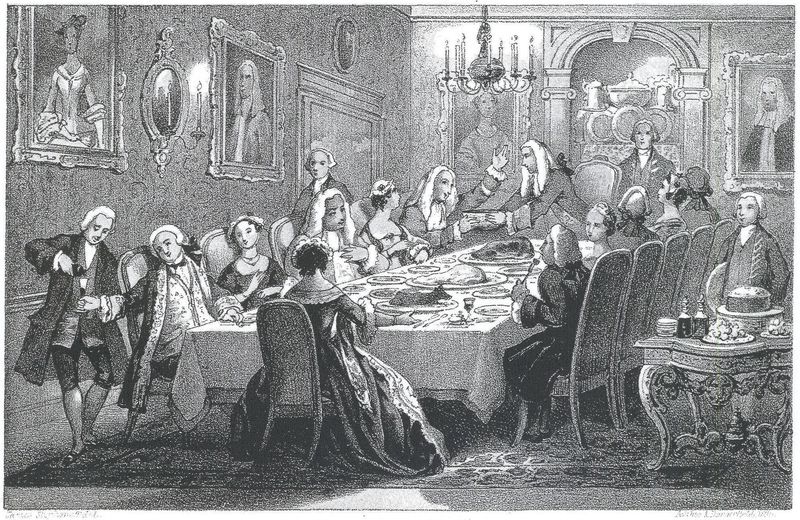Christmas is but one week away, and where would a good dabbler be without a spot of wassailing. Before we set off wassailing incorrectly, we thought it prudent to consult Epicurean Luke Honey from The Greasy Spoon Blog to find out what wassailing actually is…
Here we come a-wassailing
Among the leaves so green;
Here we come a-wand’ring
So fair to be seen.
REFRAIN:
Love and joy come to you,
And to you your wassail too;
And God bless you and send you a Happy New Year
And God send you a Happy New Year.
A few years ago I became fascinated by Wassail. It’s a word that gets bandied about at Christmas, but I bet you anything that most people haven’t a clue as to what exactly it is or means. And neither did I until I did a bit of good old internet research. Wassail is a traditional mulled punch, drunk at Christmas-time in the Northern and Germanic countries. Wassailing can either mean the singing of carols (at Christmas, the serfs would wassail the Lord and Lady of the Manor), or, as in Gloucestershire, and the other western counties, the wassailing of an apple tree: to ensure a good harvest and drive away the evil spirits. This happens on Twelfth Night. The wassail is served in a wassail cup or bowl.
Every year, I make my own recipe for mulled cider, and it’s exceedingly good, I tell you. I’m not really a fan of mulled wine: it’s too heavy, there’s too much tannin, it gives you a headache. And then many people get it wrong. Very wrong. They chuck in a bottle of plonk, boil it up, and then add all sorts of other dodgy ingredients, including vodka; and the result is an over-acidic, pungent brew which can leave you with a god-awful hangover.
Mulled Cider is different; smoother- and in my opinion delicious. There are no rules; but to get the best results, I suggest that you keep it simple. In a large pan, I pour in a decent dryish West Country or Norman organic cider. The stuff that looks like still, dark, static pond water. Try and avoid the cheaper, sweeter, fizzy stuff.
Next, I cut an orange in half, and add that. I do the same with a lemon. I add a few spices: a cinnamon stick, a few cloves, ground nutmeg, and a kernel of ginger. All of these work well. I taste it.
If it’s too dry, you’ll need to add a bit of brown sugar. Then it’s warmed up. You don’t want to boil it. Keep it simmering at just below boiling point. If you boil it, all the alcohol will vapourise away, defeating the whole point of the thing in the first place. If you’re going to serve it in glass mugs, make sure that you put a silver spoon in the mug first. This will prevent the glass from shattering.
If you’ve got time, decorate the wassail with “Lamb’s Wool”. This is just bits of peeled apple, simmered in cider until woolly (it “explodes”). The pulp is floated on top of the mulled cider.











I want a drink now, and its only 10.30am, thanks Luke!
This year I note the appearance of ‘ready made’ mulled cider in the supermarkets – has anyone tried it? I guess it’s probably not very nice, in the tradition of all shop-bought ‘premade’ drinks…
Worm,
My worry here is that the ready-made supermarket stuff is going to be made from an ersatz fizzy cider. If you use a decent, dry-ish, flat-ish cider it’s going to be so much the better…
Can I urge everyone to try mulled cider this year. It really is so much more satisfying than mulled wine…
I’ve still got a pre-mulled wine from last year. I’ll have to give the cider a go.
But isn’t there something we ought to be bellowing or declaiming at the point of drinking? “Wassail! Wassail! I muckle thee, Wassail!” or similar?
Luke,
I hope you won’t object to a bit of lexicographical trespass. The OED goes to town on the etymology, so I thought, season of giving and so on, that we could borrow (some of) it.
1. A salutation used when presenting a cup of wine to a guest, or drinking the health of a person, the reply being drink-hail
2. The liquor in which healths were drunk; esp. the spiced ale used in Twelfth-night and Christmas-eve celebrations.
3. A custom formerly observed on Twelfth-night and New-Year’s eve of drinking healths from the wassail-bowl.
4. carousal; riotous festivity, revelling
5. A carol or song sung by wassailers; a wassailing or health-drinking song
As an ordinary salutation (= ‘hail’ or ‘farewell’) the phrase, or an approximation to it, occurs both in Old English and in Old Norse. But neither in Old English nor in Old Norse, nor indeed in any Germanic language, has any trace been found of the use as drinking formulas, of the phrases represented by wassail and drinkhail. It seems probable that this use arose among the Danish-speaking inhabitants of England, and became more or less common among the native population; in the 12th cent. it was regarded by the Normans as markedly characteristic of the English. The earliest known occurrence of the phrases is in Geoffrey of Monmouth (c1140), in the well-known story of Rowena. Geoffrey’s attribution of the phrases to the 5th century is an anachronism; the original story as told by Nennius contains nothing corresponding to them. In Wace’s Brut (c1180), which is a metrical version of Geoffrey, various MSS. have weshel, waisseil, gasel; drinkel, drincheheil, drechehel. That Wace’s acquaintance with the ‘English’ phrases was not wholly derived from the passage in Geoffrey is shown by his reference to them in the Roman de Rou, where it is said that the night before the battle of Hastings was spent by the English in revelry, with cries of weissel and drincheheil. In the Speculum Stultorum of Nigellus Wireker (c1190) the English students at the university of Paris are praised for generosity and other virtues, but are said to be too much addicted to wessail and dringail.
I must say that I for one would LOVE it if we were to replace ‘cheers!’ with ‘DRINK-HEIL!’